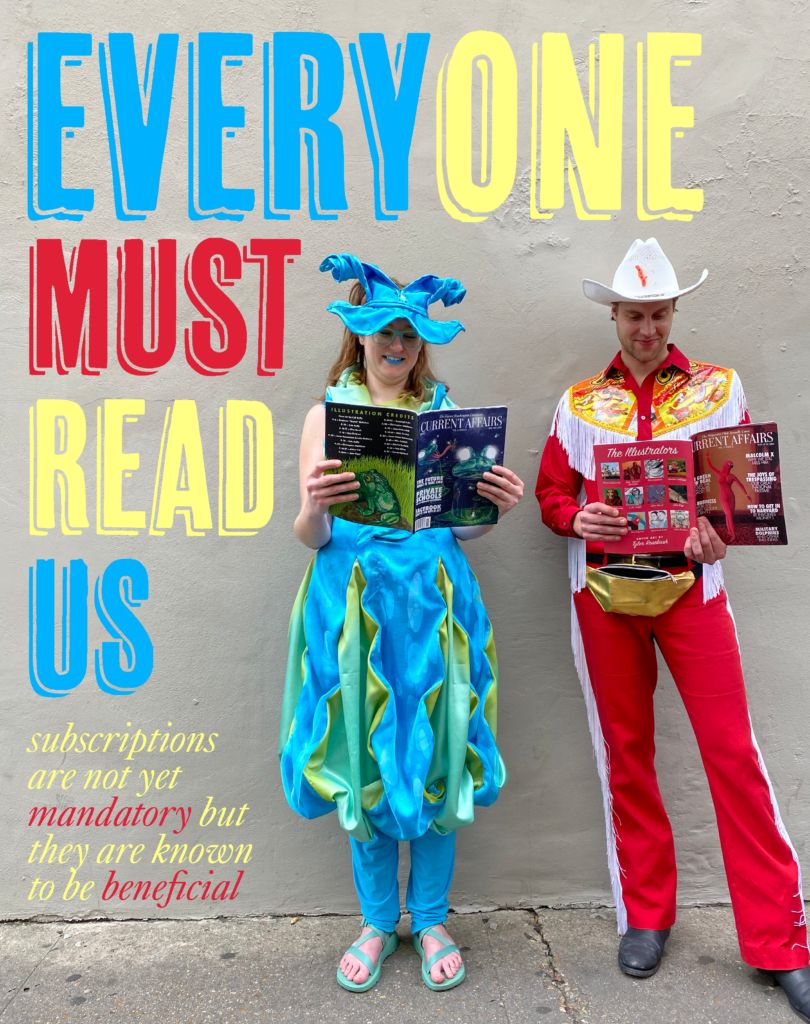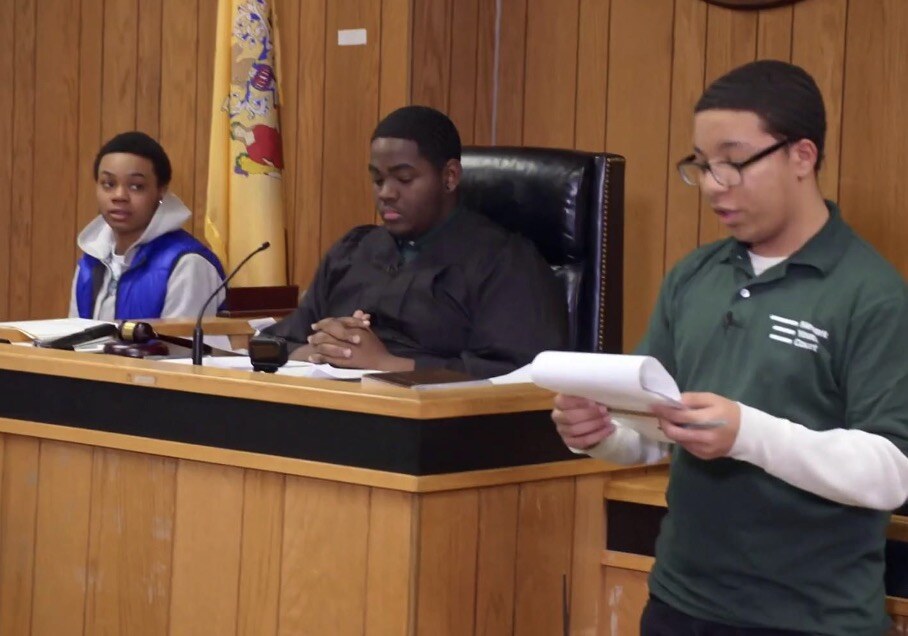
In Praise of the Teen Court
Why shouldn’t teenagers get to democratically decide on matters of justice? Teen courts are a fascinating and empowering experiment in alternatives to harsh punishment.
When I participated in the Sarasota Teen Court in high school, it seemed perfectly ordinary and not at all strange. Now, 15 years later, I find it fascinating. In some ways, I can’t believe it even existed.
People who have never heard of Teen Court are sometimes baffled by the concept. I’ve mentioned casually in conversation before that when I was in high school, I was a “teen attorney” on criminal cases. “Like mock trial?” they say.
“No, these were real cases.”
“So you like assisted a lawyer?”
“No, I was the lawyer.”
“But you hadn’t passed the bar exam?”
“No, I was fourteen years old.”
“And you argued in court?”
“Yes. I had clients.”
“Uh, and that was legal?”
It was legal. And it was great.
The existence of teen courts may not be news to most people. There are hundreds of them all over the country, and you may have seen one or taken part in one. They are perfectly legal. But they’re quite interesting.
The structure of the programs varies around the country, but in Sarasota, it goes like this: when minors are arrested on first offenses (misdemeanors and low-level felonies), usually vandalism, shoplifting, drug possession, fighting, etc., they are given the option to avoid the ordinary juvenile court system and instead go through the teen court process. They have to admit guilt in order to enter the teen court, but once it’s completed their records are wiped.

The teen court conducts a sentencing hearing. In the hearing, which takes place in an ordinary courtroom, all of the jurors are teenagers, and so are the attorneys. (In Sarasota, the judge is an actual judge or a local attorney, unlike in some teen courts, where the judge is also a teenager.) A prosecuting teen attorney gives an opening statement laying out the state’s argument for the sentence the defendant should receive. The defending teen attorney gives the defendant’s side of the story. The defendant takes the witness stand and is questioned by both sides. Closing arguments are given. The jury of teenagers withdraws to deliberate, and hands down a sentence. The sentence consists of a certain number of community service hours and a certain number of jury duties on the teen court jury. Sometimes an additional requirement like writing an apology letter is imposed. The court does not have the power to incarcerate anyone.
I was a “teen attorney” for all four years of high school, and I went nearly every week. I always took the defense side. I would arrive at 4:30 p.m. and pick up a packet containing the night’s docket of cases, which were classified by their seriousness (A being the least serious, D the most). The teen attorneys would split up the cases. Once I had a list of my clients, I would go and find them waiting in the hallway. I (and my co-counsel, if I had one) would bring them into an interview room, where we would get to know them, find out their take on what happened, their background, their aspirations, their feelings about what they did. Then I would go off and figure out what questions to ask them on the stand and write an opening and closing statement. The session itself would be very solemn. Everyone had to dress well. The statements could be quite dramatic. It did not strike anyone at the time that, as BuzzFeed News observed in a profile of teen court programs, the whole thing could “sound like the premise of a sitcom.”
Teen Court was a great experience for me personally. I learned public speaking skills. I deepened my conviction that I wanted to spend my life sticking up for people who needed an advocate. I made good friends. Other kids liked me because I had defended them in court, and I was pretty good at it. (I always set out to thrash and thwart the prosecuting teenager as best I could.) But, my own positive memories aside, is the program a good idea? The main question should not be “is it enjoyable for the teenagers whole role-play the jurors and attorneys” but does it help those who are accused of crimes avoid having their lives ruined while helping to redress whatever harm they might have caused?
I think it does. For one thing, it gets kids out of the awful ordinary juvenile punishment system, and does not use detention as a remedy. It’s a diversionary program that will wipe their record clean if they complete it. It doesn’t administer harsh punishments. It’s non-carceral. “Tough on crime” types don’t like it. (When a version opened in England, a representative of the Centre For Crime Prevention said that the “scheme combines the worst of soft sentencing and silly gimmicks.” As a fan of both, I don’t see the problem with combining them.) The sentences kids are given are real, but they’re the kind of thing an anti-carceral type should consider the correct response to harm and wrongdoing. Community service hours are precisely what people should have to do. But the jury duties are also a great idea. They mean that teenagers who enter the process aren’t just being judged by a jury of “goody two shoes” types. They’re making their case to a group of people who have committed offenses themselves. (Although some jurors are volunteers.) Imagine if ordinary criminal juries were comprised disproportionately of former offenders! If you’re going to imagine a fair way of adjudicating juvenile offenses, a teen court seems pretty close to the ideal. It’s a jury of actual peers and its sentences are reasonable but not negligible. The teenagers who commit legal offenses also eventually get the opportunity to be advocates/attorneys themselves; in Sarasota, one of the proudest success stories was that of a boy who had committed one of the most serious felonies in the history of the program and went on to continue volunteering as an attorney (he’s now an actual attorney).
Do teen courts “work”? The Sarasota Teen Court touts remarkably low levels of reoffense and high levels of parent satisfaction. There are plenty of anecdotes about lives changed by these programs, and some research suggesting that they can lower recidivism, with those who go through the process less likely to re-offend, but the evidence is mixed. An interesting aspect, summarized in the New York State Bar Association’s journal, is “the sites with the strongest findings that favored teen court were those that used courtroom models in which youth themselves performed all the key roles.” In some teen courts, adult judges decide the sentences, whereas in others, young people do everything including determining the sentences.
But the narrow focus on recidivism rates seems to me to overlook the best qualities of teen court programs. For me, what’s astonishing about them is how literally “empowering” they are for young people. They allow teenagers to be attorneys, jurors, and even judges in real cases. I think this sends a powerful message. It was certainly a confidence-booster for me to be given the responsibility, at such a young age, to defend an actual client in a criminal case. If you have faith in young people, they will rise to the challenges you put to them in in remarkable ways. In the jury rooms, teenagers who have themselves committed crimes, the “bad” kids, are given the responsibility of deciding what justice is for other kids. That’s a powerful statement to a young person that they’re not going to be thrown away or given up on for doing something wrong.

Some teen courts are not quite as generous in the responsibilities they give to teens. Some are held in school cafeterias or classrooms rather than courtrooms, which I think is probably a mistake, because it implies that the case is less “real.” Some programs refuse to use the phrase “teen attorney,” probably because it raises those tricky “Hey, but don’t you have to pass the bar exam?” questions. They call them “advocates” instead, which makes the whole thing seem less real or important. The more they let young people do themselves, the better these programs are.

I still don’t think the programs are ideal. Because teen courts get cases that are diverted from the juvenile punishment system, if that system is racially discriminatory, the docket of the teen court will reflect that. I remember receiving several cases where Black teens had been arrested on obviously bogus charges. This is where the requirement that teenagers plead guilty in order to enter the diversion program can cause problems. It’s true that records get wiped when the program is done, but in my own observations of the program, juries sometimes struggled because teens had pled guilty in cases where they clearly hadn’t done anything criminal. The fact that the teen court is a positive alternative to ordinary juvenile punishment means there’s a very strong incentive to enter a guilty plea in order to enter the program, which means there are teens whose cases should really just be dismissed but they’re having to go through the teen court process. Being made to do a few community service hours is not a terrible injustice (in Sarasota, when cases shouldn’t have been brought in the first place, juries simply gave the lightest possible sentence), but teen courts really need the option to dismiss charges altogether.
I also think teen courts should have the option to call the arresting officer to the witness stand so that the teenager defense attorney can interrogate them, something that was not an option in the program I was part of. The prospect of having to sit and be accused of discriminatory policing by a teenaged attorney in front of a teen jury might act as some disincentive to cops thinking of sending trumped-up arrests to the diversion program.
As I’ve grown older, I’ve spent more time thinking about how we can devise practical alternatives to cruel and dysfunctional systems. Teen Court seems to me to be a humble example of something that is “quietly radical.” It deals with antisocial behavior without harsh punishment and in a way that sends offenders the message that society believes in their capacity for civic engagement. I like that. Teen courts do not appear to have gotten much press coverage. I don’t hear them talked about much, even though there are a lot of them. But as we start to think about how to rein in American mass incarceration, it’s worth reflecting on these idealistic diversion programs where young people, even those who commit crimes, are treated as having worth, dignity, and the capacity to decide on lofty questions about the application of justice.


